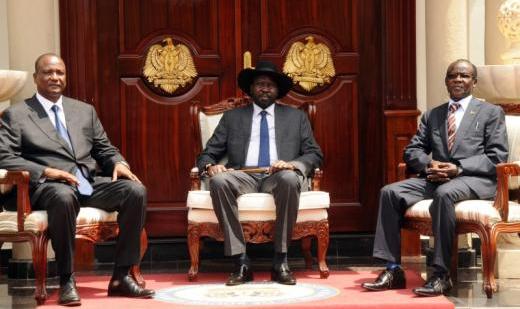South Sudan President pledges radical economic reforms

September 7, 2017 (JUBA) – South Sudan President Salva Kiir has vowed to undertake radical economic reforms to end the country’s current economic crisis and improve the living condition of the conflict-affected people.
President Kiir, according to a statement read for him by James Wani Igga, and aired by the state owned South Sudan Broadcasting Corporation on Wednesday said he was aware of the worsening economic hardship and the difficult living conditions people are facing.
The government, he said, was working hard to find possible answers to the situation.
“My message to you, the citizens, I know you are suffering and because of your resilience your government and the leaders are working way to stop this senseless and take strong measures to reform the economy, said President Kiir is a televised statement delivered on his behalf by the Vice President Wani.
The presidential message which was read during a meeting of the Chamber of Commerce vowed to reform South Sudan’s trade policies to help address some of the economic challenges.
Kiir acknowledged the other challenges his administration was facing, including political instability and the high crime rates in the capital Juba.
South Sudan devalued its currency in 2015, on the advice of the International Monetary Fund (IMF), pushing the economy of the country dependent on oil exports to a difficult situation.
The civil war pitting government soldiers and armed opposition fighters led by the former First Vice President Riek Machar have added a huge pressure on the economy of the young nation.
The new nation has been at war since December 2013, just two years after the attainment of independence, which came after decades of conflict with Khartoum. Oil, which was expected to be South Sudan’s main revenue stream, has failed to bring the desperately-sought development.
The continuing civil strife has all but stopped production in Unity State, one of the country’s two oil areas. Thousands of South Sudanese have fled the violence at home, while equally large numbers have been displaced internally.
(ST)
